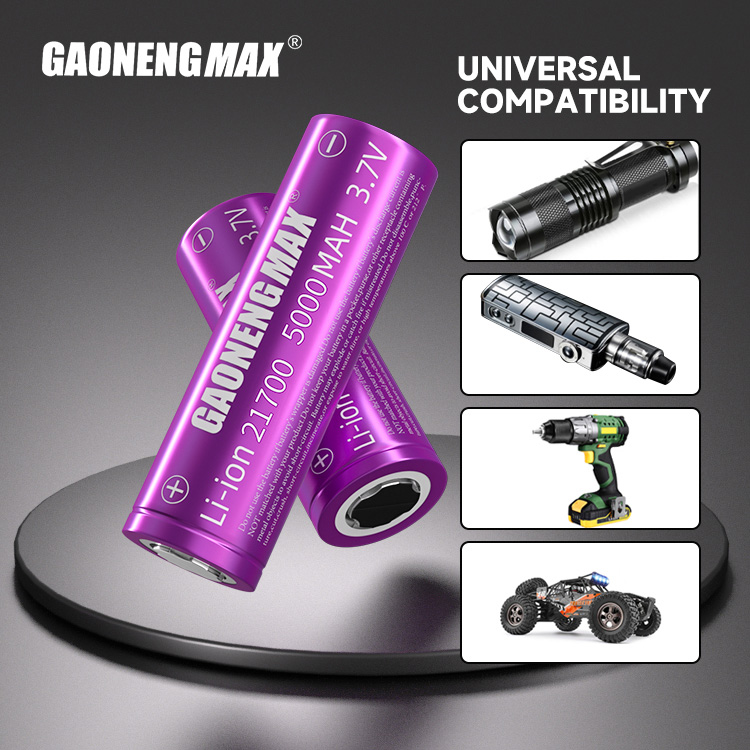

Practical theory proves that fast charging is the most destructive to lithium batteries. The fast charging function is harmful to the battery of the mobile phone. In fact, whether it is fast charging or slow charging, it will damage the battery life. The main reason why fast charging affects the battery life of mobile phones is that it increases the power. When charging,
Practical theory proves that fast charging is the most damaging to lithium-ion batteries. The fast charging function is harmful to the battery of the mobile phone. In fact, whether it is fast charging or slow charging, it will damage the battery life. The important reason why fast charging affects the battery life of mobile phones is that it increases the power. Charging will bring more heat than slow charging, and high temperature will accelerate battery aging.
Fast-charging lithium-ion batteries refer to batteries that are charged in a short time. Generally, the battery is fully charged within 6 minutes, and the battery capacity reaches more than 95% of the rated capacity. Time is life, and fast-charging batteries shorten charging time, improve efficiency, and reach international advanced levels.
Requirements for fast-charging lithium-ion batteries
●According to the structural characteristics of fast-charging lithium-ion batteries, the maximum charge termination voltage should be 4.2V. Overcharging is not allowed, otherwise too much lithium ions from the positive electrode will be taken away and the battery will be scrapped.
●Lithium-ion batteries have high charging and discharging requirements and can be charged using dedicated constant current and constant voltage chargers. Usually, constant current charging reaches 4.2V/section and then it switches to constant voltage charging. When the constant voltage charging current drops to less than 100mA, charging should be stopped.
●Charging current (mA) = 0.1~1.5 times battery capacity (for example, for a 2000mAh battery, the charging current can be controlled between 200~4000mA). The conventional charging current can be selected to be around 0.5 times the battery capacity, and the charging time is about 2 to 3 hours.
How much impact does fast charging have on lithium-ion batteries?
Whether lithium-ion batteries can be quickly charged depends on the experimental data of lithium-ion battery manufacturers. Not all lithium-ion batteries can be quickly charged, otherwise the life of the lithium-ion battery will be greatly reduced, and there will be dangers such as fire and explosion. Therefore, each manufacturer will configure slow charging ports and fast charging ports according to the characteristics of lithium-ion batteries, and the BMS system will uniformly manage the charging process. As long as charging is carried out in accordance with the manufacturer's requirements, it is safe.
Lithium-ion batteries and lead batteries are the same principle. The working principle of fast charging is: first, add voltage, and second, add current current. Just like this, fast charging also uses this principle, so a large amount of current will cause the battery plate to react at an excessive speed. This reaction can generate a large amount of heat due to internal resistance and exceed limiting temperature values, thereby damaging or prematurely aging the battery.
Lithium-ion batteries have no charge memory. The so-called nominal number of charges is 500, which means that it can be charged from 0 to 100% 500 times.

Popular recommendation
AG3 battery!How should my country develop in the face of the leading fuel cell technologies of Japan
2023-10-089v alkaline battery.Analysis on BYD e6 battery technology
2023-10-0818650 lithium-ion battery.Introduction to new battery technology after lithium-ion rechargeable batt
2023-10-08AG8 battery!Safety "core" is the foundation. Interpretation of Euler battery core technolo
2023-10-086LR61 battery.Germany develops process to extract lithium from hot water for use in manufacturing el
2023-10-08LR03 battery!Can BYD's hybrid technology rival Toyota's?
2023-10-08CR2320 battery.High-efficiency copper electroplated silicon-based heterojunction solar cells success
2023-10-08LR41 battery!Chinese and foreign R&D teams synthesize "double modification" cathode ma
2023-10-08601435 polymer battery.Research on the recycling and reuse of lithium, nickel, cobalt and other lith
2023-10-08AG1 battery.What is the production process of 18650 lithium-ion battery pack?
2023-10-0918650 lithium 3.7 battery.Balancing principle of battery pack in series UPS power supply
2023-10-08Nickel Hydride No. 5 battery.Series lithium battery balanced charging battery pack protection board
2023-10-09